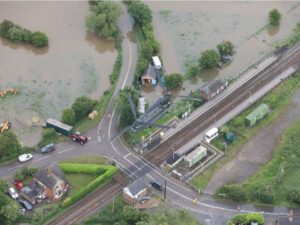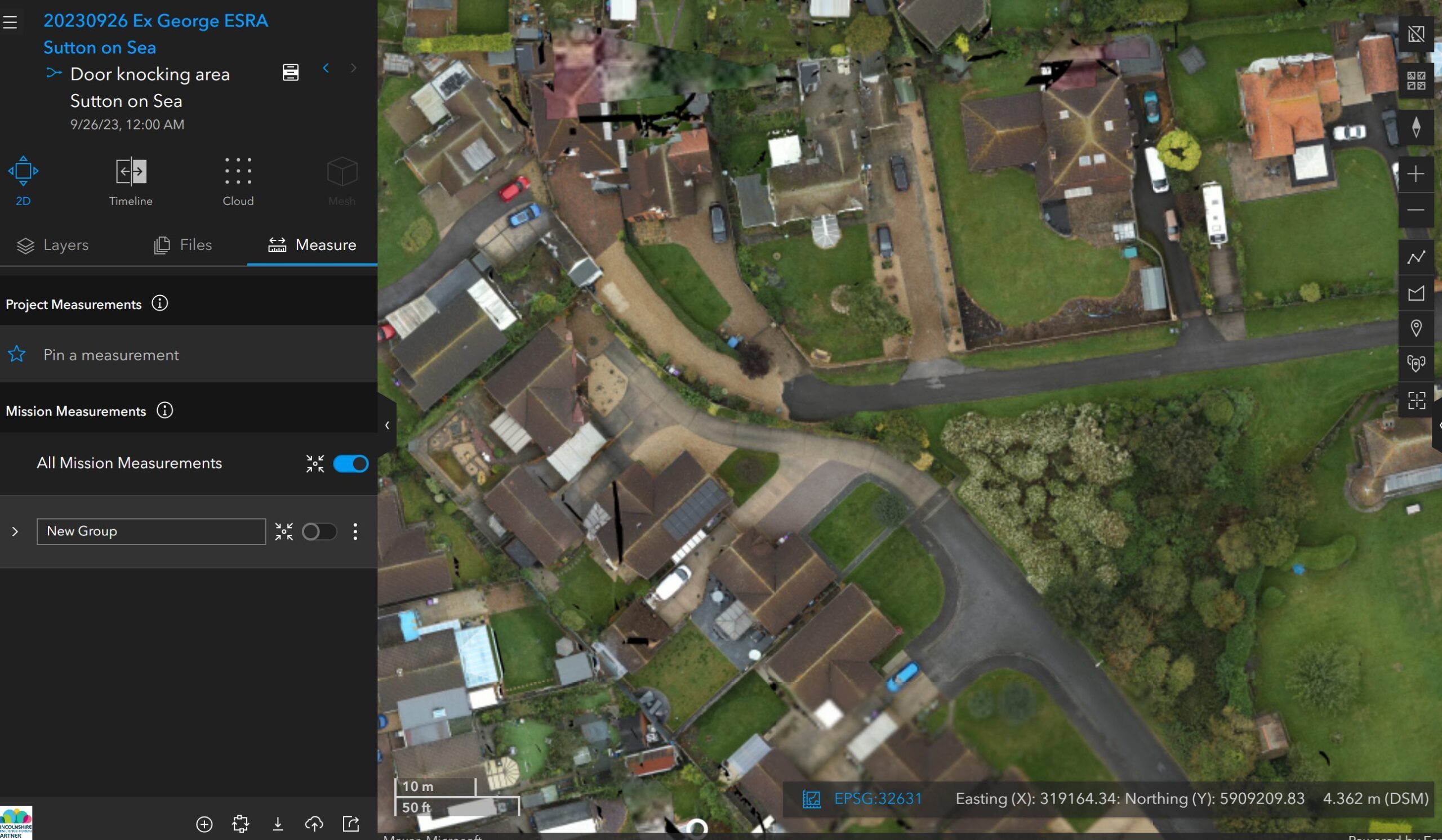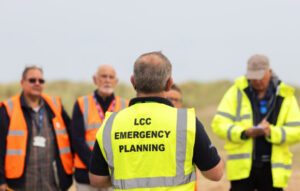
by DRONELIFE Staff Writer Ian J. McNabb
The Lincolnshire Resilience Forum (LRF) recently adopted new technology from geospatial services firm Esri UK to enhance its response capability to a wide range of emergencies, including flooding, loss of critical infrastructure, pandemics, or severe weather. Covering over 2000 square miles and 750000 residents, the LRF is a multi-agency partnership encompassing a wide range of government services and first responders designed to protect human life during emergencies.


“Lincolnshire is a large county with no motorways and few dual carriageways so response and evacuation planning is critical. These new innovations are enabling emergency planners to model risks affecting the county to maximise response, improve communication and coordination and reduce, as practicably as possible, the impacts on the wider communities of the county. Creating the new caravan dataset in particular will dramatically improve intelligence.”
The project is powered by Esri’s real-time mapping dashboard, which first came online in 2022 and was fully online by the time of Storm Babet. Available on computers, mobile devices and large touch screens in the County Emergency Centre, it integrates data from over 30 agencies to allow for rapid decision-making, allowing for improved responsiveness compared to the previous paper maps and spreadsheets.
More information on Esri UK is available here.
Read more:
- FAA Drone Research Awards: $2.7 Million for Disaster Preparedness, Emergency Response
- Drone Delivery for Disaster Response: In Japan, Bringing Critical Supplies to Isolated Villages
- Prevention, Response and Recovery: GLOBHE Uses Drones to Manage Disasters Around the World
- A Drone Mobile Tower for Disaster Response: the Starlink Connected Solution
Ian McNabb is a staff writer based in Boston, MA. His interests include geopolitics, emerging technologies, environmental sustainability, and Boston College sports.
Miriam McNabb is the Editor-in-Chief of DRONELIFE and CEO of JobForDrones, a professional drone services marketplace, and a fascinated observer of the emerging drone industry and the regulatory environment for drones. Miriam has penned over 3,000 articles focused on the commercial drone space and is an international speaker and recognized figure in the industry. Miriam has a degree from the University of Chicago and over 20 years of experience in high tech sales and marketing for new technologies.
For drone industry consulting or writing, Email Miriam.
TWITTER:@spaldingbarker
Subscribe to DroneLife here.